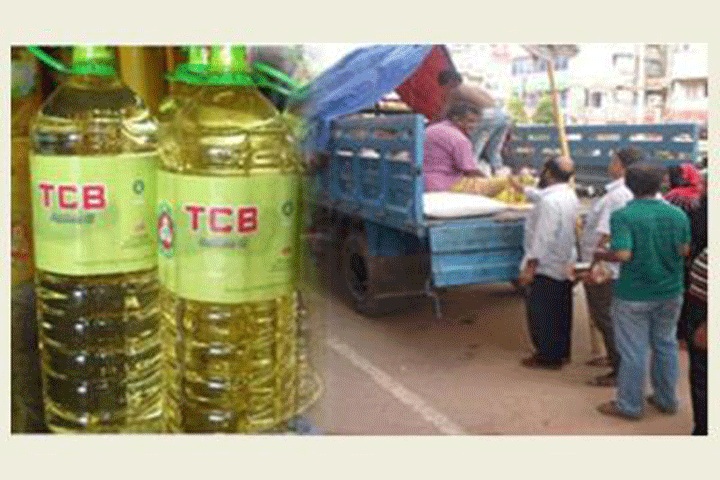J-K: After GI tags, J-K handicrafts get QR labels, sell like hotcakes in global markets
In a major achievement, Jammu and Kashmir has become the first region in the country to issue Quick Response (QR) labels for its 13 different GI and non-GI registered handicrafts.
The QR code labels are a step towards providing global recognition of the traditional arts and crafts of the Himalayan region.
The government has been aiming to make J-K products popular across the globe through special marketing strategies and schemes. As a result of this, the products are being sold like 'hotcakes' in the international markets due to their uniqueness, master craftsmanship and branding.
Right after J-K's transition into a Union Territory in 2019, the government has been aiming to restore the pristine glory of handicrafts.
Initially, nine products, Kani Shawl, Kashmir Pashmina, Kashmir Sozini Craft, Kashmir Papier-Macihe, Kashmir Walnut Wood Carving, Khatamband, Kashmiri Hand Knotted Carpets and Kashmir Saffron and Basmati were issued Geographical Indication (GI) tags to fight counter branding.
Notably, the Pakistan-sponsored insurgency that broke out in the valley in 1990, had paralysed the handicrafts sector, as the gun-toting terrorists sent by Pakistan disrupted the daily chores which led to the closure of handicraft and handloom shops and units in J-K.
The artisans and weavers had given up hope of returning to their traditional crafts. Tourism and exports being hit further worsened the situation.
Some normalcy returned to J-K as elections were held, and a government came headed by National Conference leader Farooq Abdullah. In 2002, the Peoples Democratic Party led by Mufti Mohammad Sayeed entered into a coalition with the Congress Party and formed a government. In 2005, veteran Congress leader Ghulam Nabi Azad became the J-K Chief Minister.
In 2009, National Conference returned to power, and in 2014 PDP made a comeback in coalition with BJP.
In 22 years, J-K got five chief ministers. Though all of them promised to promote handicrafts and languishing crafts they fell short of fulfilling their pledges.
On August 5, 2019, the regime led by Prime Minister Narendra Modi announced its decision to abrogate J-K's special status and bifurcate it into two Union Territories.
It was promised that this decision will lead to the end of Pakistan-sponsored terrorism once and for all. They have remained true to the words as terrorism in J-K is on its last legs.
J-K's reorganisation led to all the centrally sponsored schemes reaching out to the people in the state. Several schemes were launched, under which craftsmen and artisans were provided with incentives. Many initiatives have been taken to improve the wage earnings of the craftsmen and create linkages with producer organizations to inculcate skills and aptitude in the trainees.
As a result of this, young craftsmen and artisans have turned entrepreneurs and are working hard to popularize the brand J-K.
The government has also roped in several corporations to explore the possibilities of tie-ups with the Jammu and Kashmir
Entrepreneurship Development Institute (JKEDI). The branding, quality certificates, and marketing of Jammu and Kashmir-based products have also been undertaken.
Many youngsters and aspiring entrepreneurs have undertaken start-ups financially viable and revenue-generating units.
Many traditional art forms that were at risk of turning extinct have been revived. The branding of handicraft and handloom items, organizing exhibitions and marketing events have helped the people associated with the industry to make a comeback.
The GI tags and QR coding have turned J-K handicrafts into international products. They are part of the multiple steps taken by the government to promote local products for greater economic benefits to artisans, weavers and craftsmen.
Recently J-K Lieutenant Governor Manoj Sinha launched QR-Code-based labels of 13 different GI and non-GI registered crafts of J-K.
The QR-Code labels would help to authenticate the origin and quality of the crafts, improve the quality assurance in both national and international markets and benefit craftsmen, traders and exporters.
It will also ensure product quality, and genuineness and boost global demand for products made in J-K.
Steps that have been taken in the recent past have made the handicraft sector more productive and financially attractive. Product diversification, brand promotion and new marketing strategies are connecting buyers with artisans directly.
As a result of these steps, the art and craft of Jammu and Kashmir are on the revival path.
04 Feb 2023,15:30
















 Live Tv
Live Tv








